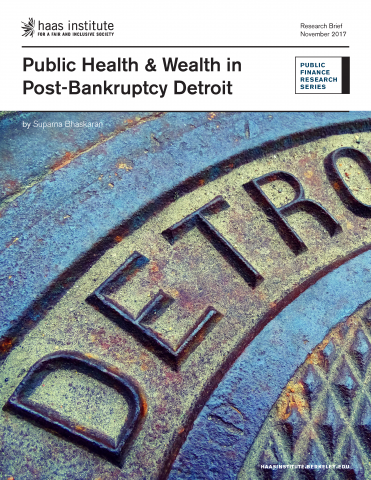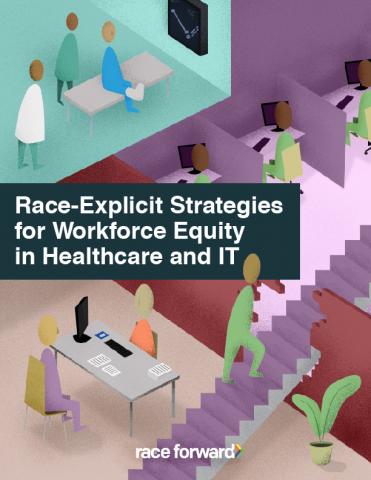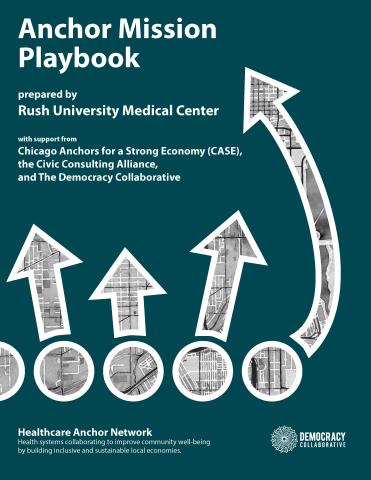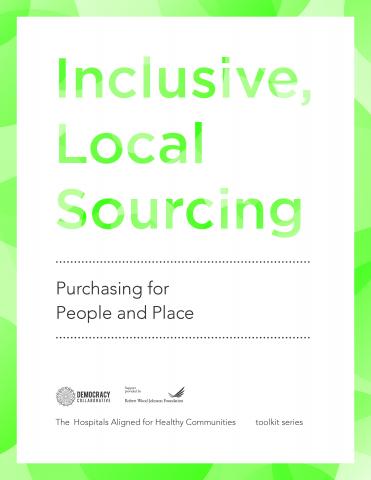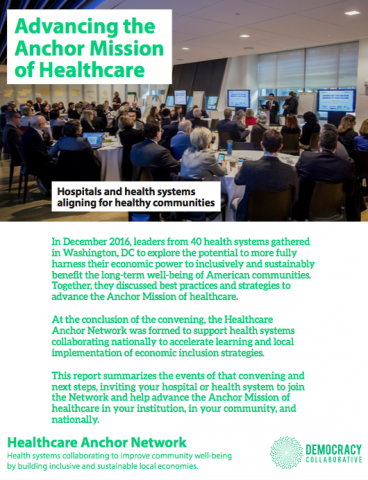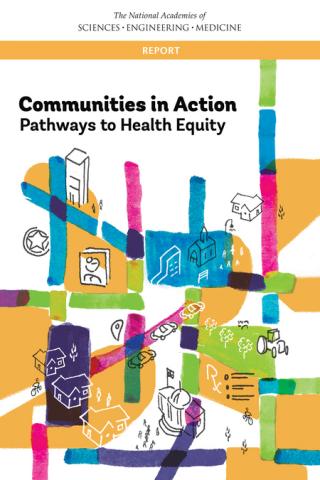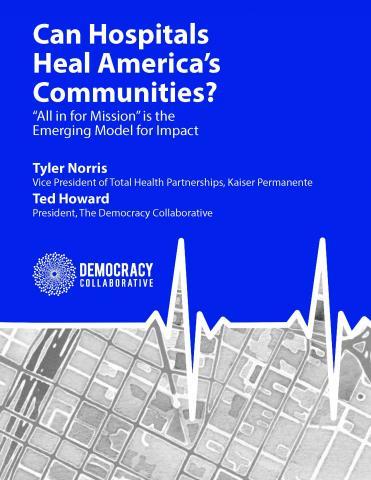Merrill Goozner writes in Modern Healthcare "Editorial: Anchors aweigh on tackling the social determinants of health." In this editorial, Goozner writes about the work of the Healthcare Anchor Network:
Next week, a 2-year-old network of major healthcare systems dedicated to combating the social problems contributing to ill health in their own backyards will go public. They've chosen to highlight a San Francisco Bay Area food production center that will be up and running by the end of this year.
Located in Richmond, a working-class community that's two-thirds Hispanic and African-American, the center will employ about 200 people in what its sponsors promise will be living-wage jobs. Hospitals belonging to Kaiser Permanente, Dignity Health and the University of California at San Francisco will purchase fresh meals from the facility.
Organizers say this is just the start of a nationwide movement to use healthcare systems, often a community's largest employer and purchaser, as an "anchor" institution for local economic development. Three dozen major systems, which collectively represent 600 hospitals with over 1 million employees in more than 400 cities and towns, have already signed on to the Healthcare Anchor Network. They are pledging to use their hiring, purchasing and investment decisions to promote better-paying jobs.
It's a promising development in healthcare's evolving approach to population health. The core concept rests on the belief that achieving better health outcomes for the populations for which they're at risk financially will ultimately depend on improving the social conditions that spawned their diseases.
